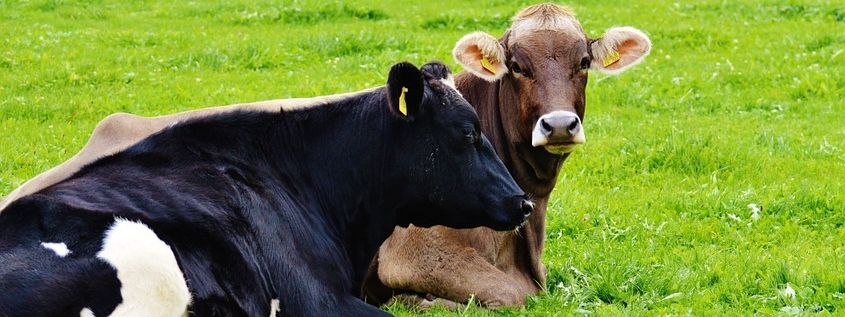With our increasingly busy lifestyles, our nutrition is usually the first aspect of our lives to take a knock. A simple decision such as the type of milk we use not only has the possibility to improve our health, but when produced sustainably (Read more on sustainability here), the benefits of pasture-fed milk span far!
As with every commodity, the aim is to convert inputs into outputs1 and dairy farms are no exception to this. On pasture-based dairy farms (Read blog: What is pasture-based dairy farming?), which we work on, grass is one of the greatest inputs that result in milk production. What the cow is fed has a great impact on the amount and quality of milk it produces2. What does choosing milk produced from pasture-fed cows mean for you, the consumer, and for your health?
Photo by Alexas_Fotos on Pixabay
Not only is milk is a good source of protein (read blog: Milk, a sustainable protein source?), but it has been found that milk from cows that are predominantly pasture-fed, as opposed to grain, contain more of an unsaturated fat called conjugated linoleic acid (CLA)3. So what’s so great about this CLA? Well, a study conducted by the Harvard School of Health, suggests that CLAs not only protect the heart but can also aid in weight loss3.
Not only do pasture-fed cows produce nutritious milk, but its production processes can also help mitigate the negative impacts of this agricultural activity on the environment. The benefits of milk from pasture-fed cows just keep on piling up, so next time when choosing dairy products – choose pasture-fed!
References:
- Smit, L.A., Baylin, A. and Campos, H., 2010. Conjugated linoleic acid in adipose tissue and risk of myocardial infarction1-3. The American Journal of Clinical Nutrition 92: 34-40
- Meet Adele Bain: The trendsetting, animal-loving dairy farmer - 2017-12-05
- Breaking the wind for increased pasture wellbeing - 2017-11-30
- Mutualism:What benefits the land, benefits us - 2017-10-30

